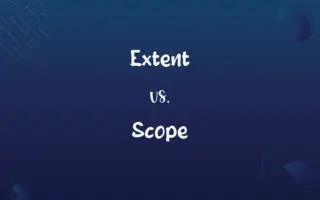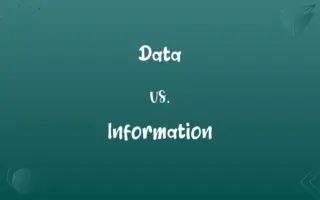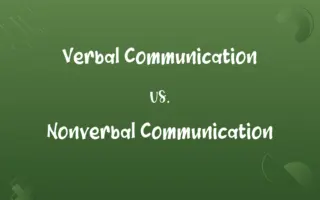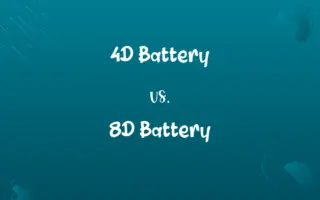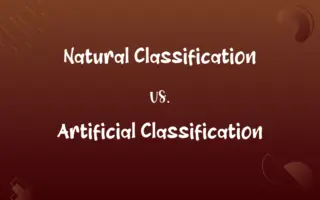Validity vs. Reliability: Know the Difference

By Shumaila Saeed || Published on January 5, 2024
Validity is the extent to which a concept, conclusion, or measurement is well-founded and corresponds accurately to the real world. Reliability is the consistency of a measure, or the degree to which it produces stable and consistent results.
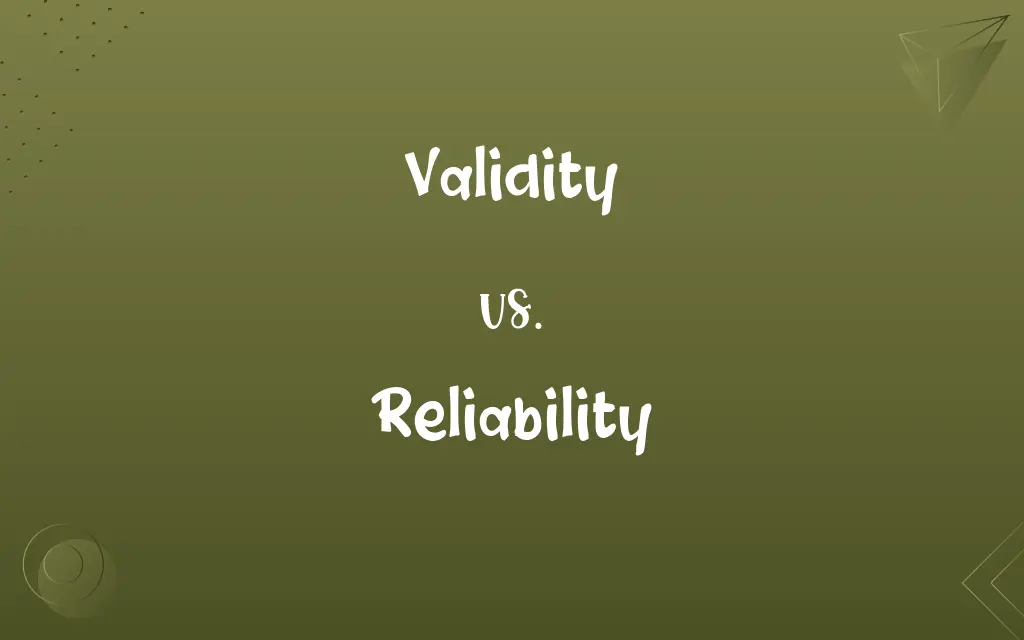
Key Differences
Validity is concerned with how well a test measures what it claims to measure, ensuring the accuracy of the results. Reliability focuses on the consistency of these measurements over repeated tests or trials, emphasizing the repeatability of results.
Shumaila Saeed
Jan 05, 2024
Validity includes content, construct, and criterion-related validity, each assessing different aspects of a test's appropriateness. Reliability includes types like test-retest, inter-rater, and internal consistency, each evaluating different aspects of consistency in measurements.
Shumaila Saeed
Jan 05, 2024
In research, validity is crucial for ensuring that the findings truly represent the concept being studied. Reliability is essential for ensuring that the results are repeatable and can be trusted over time.
Shumaila Saeed
Jan 05, 2024
A lack of validity means the test is not measuring what it is supposed to measure. In contrast, a lack of reliability implies that the measurement process is inconsistent and potentially unpredictable.
Shumaila Saeed
Jan 05, 2024
Validity is often assessed by examining the relationship between the test and other measures, while reliability is assessed through repeated measurements under similar conditions.
Shumaila Saeed
Jan 05, 2024
ADVERTISEMENT
Comparison Chart
Definition
Validity refers to the accuracy of a measurement.
Reliability refers to the consistency of a measurement.
Shumaila Saeed
Jan 05, 2024
Usage in Sentences
Validity is used to discuss the correctness of a concept.
Reliability is used to discuss the repeatability of a result.
Shumaila Saeed
Jan 05, 2024
Adjective Form
"Valid" describes something as accurate or well-founded.
"Reliable" describes something as dependable or consistent.
Shumaila Saeed
Jan 05, 2024
Associated Concepts
Truthfulness, appropriateness, relevance.
Stability, dependability, predictability.
Shumaila Saeed
Jan 05, 2024
Measurement Focus
Validity focuses on the quality of the measurement.
Reliability focuses on the stability of the measurement over time.
Shumaila Saeed
Jan 05, 2024
ADVERTISEMENT
Validity and Reliability Definitions
Validity
The extent to which a test accurately measures what it intends to.
The validity of the survey was confirmed through expert review.
Shumaila Saeed
Dec 17, 2023
Reliability
The consistency of a measure over time or across different observers.
The scale's reliability was confirmed through multiple tests.
Shumaila Saeed
Dec 17, 2023
Validity
The soundness or legitimacy of a theoretical construct.
The validity of the psychological theory was widely accepted.
Shumaila Saeed
Dec 17, 2023
Reliability
The predictability of an outcome from a particular process or method.
The car's reliability has been proven over years of use.
Shumaila Saeed
Dec 17, 2023
Validity
The relevance and accuracy of a measurement tool.
The test's validity was questioned due to biased questions.
Shumaila Saeed
Dec 17, 2023
ADVERTISEMENT
Reliability
The degree to which a method produces stable and consistent results.
His research was praised for its high reliability.
Shumaila Saeed
Dec 17, 2023
Validity
The degree to which a concept corresponds to real-world conditions.
The validity of her hypothesis was supported by experimental results.
Shumaila Saeed
Dec 17, 2023
Reliability
The dependability of a test in yielding similar results under consistent conditions.
The reliability of the experiment was ensured by strict protocols.
Shumaila Saeed
Dec 17, 2023
Validity
The appropriateness and truthfulness of the conclusions drawn from data.
His argument lacked validity because of flawed data.
Shumaila Saeed
Dec 17, 2023
Reliability
The repeatability of results when a measurement is replicated.
The survey's reliability was verified by conducting it twice.
Shumaila Saeed
Dec 17, 2023
Reliability
Capable of being relied on; dependable
A reliable assistant.
A reliable car.
Shumaila Saeed
Dec 13, 2023
Reliability
Yielding the same or compatible results in different clinical experiments or statistical trials.
Shumaila Saeed
Dec 13, 2023
Validity
Containing premises from which the conclusion may logically be derived
A valid argument.
Shumaila Saeed
Dec 13, 2023
Reliability
(education) the ability to measure the same thing consistently (of a measurement indicating the degree to which the measure is consistent); that is, repeated measurements would give the same result (See also validity).
Shumaila Saeed
Dec 13, 2023
Validity
A quality of a measurement indicating the degree to which the measure reflects the underlying construct, that is, whether it measures what it purports to measure (see reliability).
Shumaila Saeed
Dec 13, 2023
Validity
The genuinity - as distinguished from the efficacity or the regularity - of a sacrament as a result of some formal dispositions being fulfilled.
Shumaila Saeed
Dec 13, 2023
Validity
The quality or state of being valid; strength; force; especially, power to convince; justness; soundness; as, the validity of an argument or proof; the validity of an objection.
Shumaila Saeed
Dec 13, 2023
Validity
Legal strength, force, or authority; that quality of a thing which renders it supportable in law, or equity; as, the validity of a will; the validity of a contract, claim, or title.
Shumaila Saeed
Dec 13, 2023
Repeatedly Asked Queries
Why is validity important in research?
Validity is important to ensure that research findings are accurate and representative of the real-world phenomena they intend to measure.
Shumaila Saeed
Jan 05, 2024
What is validity in measurement?
Validity refers to how accurately a measure reflects the concept it's intended to assess.
Shumaila Saeed
Jan 05, 2024
What does reliability mean in research?
In research, reliability refers to the consistency and repeatability of the results obtained from a study or test.
Shumaila Saeed
Jan 05, 2024
Can a measure be reliable but not valid?
Yes, a measure can be consistently reliable in producing the same results but not valid if it doesn’t accurately measure what it's supposed to.
Shumaila Saeed
Jan 05, 2024
What is content validity?
Content validity refers to the extent to which a measure represents all facets of a given construct.
Shumaila Saeed
Jan 05, 2024
How do you improve a test’s validity?
Improving a test's validity can involve refining the test content, ensuring it aligns closely with what it's intended to measure.
Shumaila Saeed
Jan 05, 2024
How is validity determined?
Validity is determined by examining how well the outcomes align with other related measures or expected results.
Shumaila Saeed
Jan 05, 2024
What is inter-rater reliability?
Inter-rater reliability is the degree to which different observers or raters agree in their assessment decisions.
Shumaila Saeed
Jan 05, 2024
Are validity and reliability dependent on each other?
While they are related concepts, validity and reliability can exist independently; a measure can be one without necessarily being the other.
Shumaila Saeed
Jan 05, 2024
How can reliability be affected?
Reliability can be affected by factors like changes in the measurement process, the environment, or the subjects being measured.
Shumaila Saeed
Jan 05, 2024
What is test-retest reliability?
Test-retest reliability is the consistency of a test's results when the same test is administered to the same group on two different occasions.
Shumaila Saeed
Jan 05, 2024
What is internal consistency reliability?
Internal consistency reliability refers to the extent to which all parts of a test contribute equally and consistently to the final result.
Shumaila Saeed
Jan 05, 2024
How does reliability affect research?
High reliability in research ensures that the findings are consistent and can be replicated under similar conditions.
Shumaila Saeed
Jan 05, 2024
Can reliability be quantified?
Yes, reliability can often be quantified using statistical methods like correlation coefficients.
Shumaila Saeed
Jan 05, 2024
How do researchers assess the validity of their findings?
Researchers assess validity by comparing their findings with established theories, other studies, or through expert validation.
Shumaila Saeed
Jan 05, 2024
Is reliability more important than validity?
Neither is more important; both are crucial for the overall credibility and quality of research findings.
Shumaila Saeed
Jan 05, 2024
Can a reliable test be improved for validity?
Yes, a reliable test can be modified or adjusted to improve its validity without compromising its reliability.
Shumaila Saeed
Jan 05, 2024
Does validity apply to qualitative research?
Yes, validity is also important in qualitative research, ensuring that the interpretations and conclusions drawn are credible and well-founded.
Shumaila Saeed
Jan 05, 2024
What is construct validity?
Construct validity refers to how well a test or tool measures the construct that it was designed to measure.
Shumaila Saeed
Jan 05, 2024
What role does validity play in data analysis?
Validity plays a crucial role in ensuring that the data analyzed accurately represents the concept or phenomenon being studied.
Shumaila Saeed
Jan 05, 2024
Share this page
Link for your blog / website
HTML
Link to share via messenger
About Author
Written by
Shumaila SaeedShumaila Saeed, an expert content creator with 6 years of experience, specializes in distilling complex topics into easily digestible comparisons, shining a light on the nuances that both inform and educate readers with clarity and accuracy.








